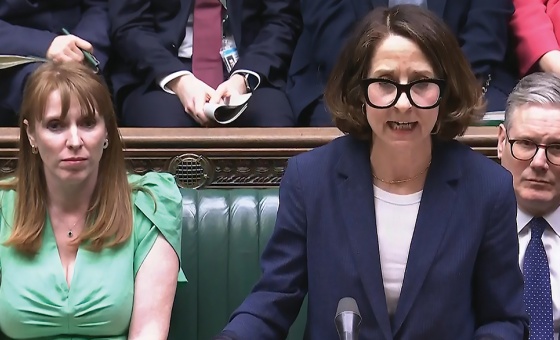This is the last article you can read this month
You can read more article this month
You can read more articles this month
Sorry your limit is up for this month
Reset on:
Please help support the Morning Star by subscribing here
MINISTERS are using poverty statistics that “hide the real scale” of Britain’s soaring levels of deprivation and food security, an influential think tank report has warned.
The Institute for Fiscal Studies (IFS) estimated 320,000 people were pushed into poverty due to mortgage interest rate rises at the end of 2023.
This was 90,000 higher than the official figures published by the government because these use the average 2022/23 mortgage rate of around 2.3 per cent.
The report, which was funded by the Joseph Rowntree Foundation (JRF), found that one in 10 households actually faced a mortgage interest rate more than double that of at least 4.7 per cent, equivalent to £490 per month.
Its author Sam Ray-Chaudhuri said poverty rises had been understated due to the unequal impact of inflation.
He said: “At a time when rates of deprivation and food insecurity have risen substantially, poverty statistics that hide the real scale of these increases risk policymakers missing what is truly happening to poverty.”
JRF chief analyst Peter Matejic added: “This report raises many questions about whether social security is adequate for the challenges looming over struggling households.”
TUC general secretary Paul Nowak said: “This surge in poverty shows the awful impact on people's lives of the Conservatives’ economic and policy failures.
“It’s a poverty crisis that has been created by poor growth and social security cuts.
“Rapid delivery of the government’s plan to make work pay will ensure more better-paid, secure jobs and help reduce poverty among working families.”
Separate figures this week revealed private rental costs have hit another record high.
Rightmove found tenants outside of London are charged an average £1,314 a month, 7 per cent more than the £1,231 of last year.
In the capital, rents also rose to a record £2,661, 4 per cent more than the £2,567 of a year ago, amid a big gap between available rental properties and demand.
Pete Marland, chairman of the Local Government Association’s (LGA) economy and resources board, said: “High housing costs are closely associated with poverty and councils want to continue to support residents who are struggling with the cost of living as much as possible.”
The government stressed the importance of economic stability and “fixing the foundations so we can grow our economy and keep taxes, inflation and mortgages as low as possible.”











